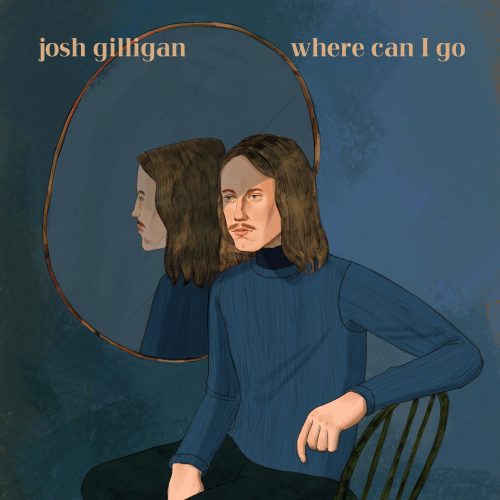Josh Gilligan’s forthcoming release, “Where Can I Go”, feels like rain battering against the window. Like watching the steam unravel from a mug of tea. Like aching for someone you shouldn’t want anymore. It’s nostalgic, visceral, and devastatingly tender.
In a sound or a word or good company/Oh you come when I’m finally feeling free
If you’ve ever listener to Gilligan, you know his work often deals with the vivid hope and longing that comes with lost love. “Where Can I Go” is a tribute to the wandering, uncertain days that follow losing someone who was the center of your world. Gilligan’s voice is an exercise of both control and vulnerability; there is something simplistic and honest about his delivery in this track, something almost matter-of-fact about his grief. The song opens with fragile strings. A soft piano. A gentle, thrumming beat. Nothing about the song is overdone. Nothing needs to be overdone. The song is self-evident in its heartache, its presence, its power. The soundscape creates a visual effect – again, I’m struck by how much this song feels like rain to me – which makes sense seeing as Gilligan is both a songwriter and a filmmaker.
Where can I go that you are not with me?/Oh, where can I go that you are not with me?
What may be the most notable strength of the song is its lyricism. I mean, talk about smart writing. Take this line, for instance: “You’re the reason for the reasons I give when I give up.” The parallelism in this line both sets up the narrative chronology and uses the repetitive wordplay to show us the speaker’s state of mind. Gilligan’s vocal delivery only strengthens this effect. The lilt of the melody coupled with Gilligan’s spotless vocal control makes the line hit like a gut punch.
Gilligan shows off his wordplay in a later line as well, where he writes: “found a space where my mind could mind its business.” The connection between his mind and the act of “minding” one’s business is clever enough, but I was also taken by how this song explores the concept of “space” in general. “Where Can I Go” examines what it means to inhabit a space of simultaneous absence and presence – that is, an absence that doesn’t feel like absence at all. This is explored both in the lyrical and sonic aspects of the track. The base concept of the song is how difficult it is to find spaces that aren’t tinged with memories of a lost partner. But the soundscape emulates the idea of “space” more conceptually. The instrumentals are gentle and breathy. The interludes between versus have a spacious, yearning feel. Sonically, the whole song feels like a slow breath in, and a slow breath out, when your chest is tight and you’re on the brink of crying.
“Where Can I Go” is an aching, smartly written song with the emotional finesse of Tobias Jesso Jr. and the vocal control of SYML. It’s a song that will make you feel less alone, even as you seek solitary spaces.







